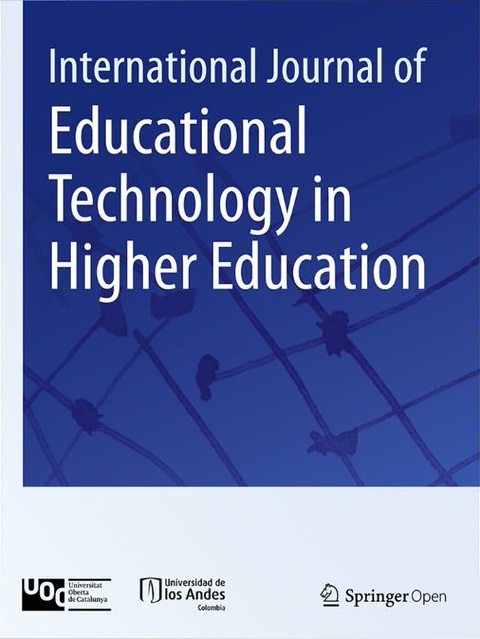为专业发展选择相关的网络辅助课程类型
IF 16.7
1区 教育学
Q1 EDUCATION & EDUCATIONAL RESEARCH
International Journal of Educational Technology in Higher Education
Pub Date : 2023-10-23
DOI:10.46328/ijte.557
引用次数: 0
摘要
面向在职人员职业发展的在线课程日益普及,并在不断增长。然而,对技术教学的研究大多是在K-12、职前教育或高等教育环境中进行的,导致对专业发展背景缺乏关注。此外,大多数研究倾向于调查学习者而不是教师,尽管据报道,后者在进行在线教学方面遇到了困难。教师面临的困难之一是选择符合学习内容的有效的技术增强课程类型。本研究旨在通过调查专业发展背景下的在线课程来缓解这一问题,特别是在政府机构,即印度尼西亚财政部下属的金融教育和培训局(FETA)。本研究通过对课程文件的分析和对在线教师的访谈,旨在揭示基于实践的考虑因素,以指导在线课程类型的选择。FETA基本上有三种主要的课程类型:远程学习、网络学习和网络研讨会课程,每种课程都适合各种学习内容。本文章由计算机程序翻译,如有差异,请以英文原文为准。
Choosing Relevant Internet Assisted Course Types for Professional Development
Online courses for the professional development of workers in service is ever pervasive and continually growing. However, studies of teaching with technology are mostly conducted in K-12, pre-service, or higher education settings resulting in a lack of attention given to the professional development context. In addition, most studies tend to investigate learners instead of instructors, even though the latter are reportedly struggling in conducting online teaching. One of the struggles instructors face includes choosing effective technologically enhanced course types in line with the learning content. This study aims to alleviate the issue by investigating online courses in a professional development context, particularly one in a government institution namely the Financial Education and Training Agency (FETA) under the Indonesian Ministry of Finance. By analyzing curriculum documents followed by interviewing online instructors, the present study aimed to uncover practice-based considerations to guide the selection of course types for online courses. There were essentially three main course types at FETA: distance learning, web-based learning, and webinar courses, each suitable for various kinds of learning content.
求助全文
通过发布文献求助,成功后即可免费获取论文全文。
去求助
来源期刊
CiteScore
19.30
自引率
4.70%
发文量
59
审稿时长
76.7 days
期刊介绍:
This journal seeks to foster the sharing of critical scholarly works and information exchange across diverse cultural perspectives in the fields of technology-enhanced and digital learning in higher education. It aims to advance scientific knowledge on the human and personal aspects of technology use in higher education, while keeping readers informed about the latest developments in applying digital technologies to learning, training, research, and management.

 求助内容:
求助内容: 应助结果提醒方式:
应助结果提醒方式:


